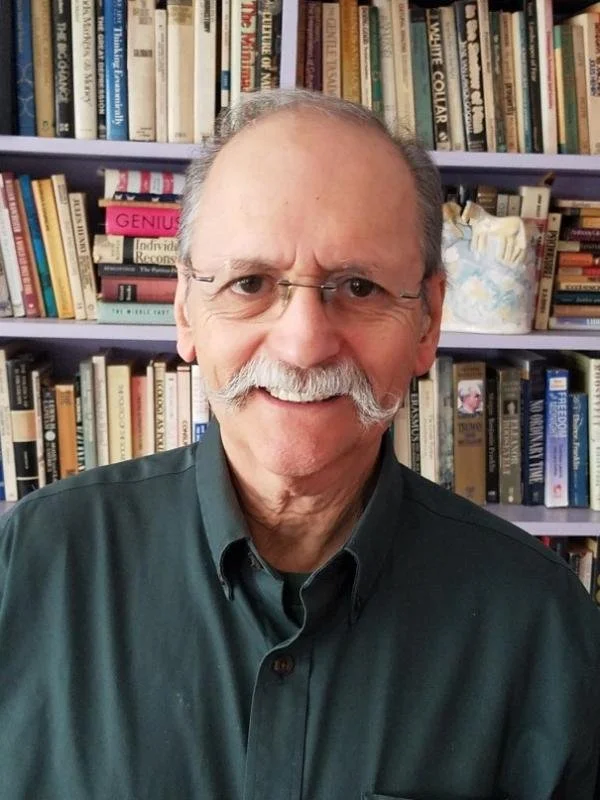 Image 1 of 1
Image 1 of 1


From Interpretation to Making Room: A Patient-Centered Pathway for Psychodynamic Practice by Paul Wachtel, PhD
Saturday November 8, 2025, 9AM - 12:30PM
Virtual: Zoom
Interpretation has long been the central metaphor for psychodynamic practice. This is consistent with one of the great strengths of psychodynamic practice, the effort to illuminate what has been hidden. But it also has important problematic implications clinically. It is associated with an image of the knowing analyst or therapist who has to inform the benighted patient what he is really wanting or feeling. Building on an alternative vision of psychodynamic practice rooted in Freud’s 1926 revision of psychoanalytic theory in Inhibitions, Symptoms, and Anxiety, I present an approach to practice aimed at making room for the thoughts, feelings, and desires that the patient has cast aside as unacceptable. I will discuss how this alternative vision of psychodynamic practice can go just as deep but in a way that enables the patient to feel better appreciated, understood, and affirmed and can enable the patient not just to know what has been cast aside and rendered unconscious but to reclaim it, to make it part of a larger, fuller, and more feelingful way of living.
Learning Objectives:
After attending this presentation, attendees will be able
Describe the difference between interpreting an unconscious wish or thought and making room for that thought or feeling in the patient’s life.
Describe how Freud’s revised theory of anxiety pointed to a revised understanding of the aim and curative processes of psychoanalytic therapy
Describe important convergences between psychodynamic therapy, person-centered therapy, and acceptance-centered cognitive-behavioral therapies
3 continuing education units available through NASW and APA
In 2022, RIAPP adopted a Pay What You Can model to ensure that cost would never be a barrier to psychodynamic and psychoanalytic learning. This approach brought new voices and perspectives into our community, and we are grateful for how it has enriched our collective growth. To continue offering the depth and quality that our community values, we are returning to set membership and event rates, while keeping a $0 option available for anyone who chooses it. In doing so, we reaffirm our commitment to inclusivity and accessibility while keeping RIAPP sustainable and positioned to thrive.
RIAPP Members receive discounted rates. To become a member, go to the “Join” tab at the top of this page.
Saturday November 8, 2025, 9AM - 12:30PM
Virtual: Zoom
Interpretation has long been the central metaphor for psychodynamic practice. This is consistent with one of the great strengths of psychodynamic practice, the effort to illuminate what has been hidden. But it also has important problematic implications clinically. It is associated with an image of the knowing analyst or therapist who has to inform the benighted patient what he is really wanting or feeling. Building on an alternative vision of psychodynamic practice rooted in Freud’s 1926 revision of psychoanalytic theory in Inhibitions, Symptoms, and Anxiety, I present an approach to practice aimed at making room for the thoughts, feelings, and desires that the patient has cast aside as unacceptable. I will discuss how this alternative vision of psychodynamic practice can go just as deep but in a way that enables the patient to feel better appreciated, understood, and affirmed and can enable the patient not just to know what has been cast aside and rendered unconscious but to reclaim it, to make it part of a larger, fuller, and more feelingful way of living.
Learning Objectives:
After attending this presentation, attendees will be able
Describe the difference between interpreting an unconscious wish or thought and making room for that thought or feeling in the patient’s life.
Describe how Freud’s revised theory of anxiety pointed to a revised understanding of the aim and curative processes of psychoanalytic therapy
Describe important convergences between psychodynamic therapy, person-centered therapy, and acceptance-centered cognitive-behavioral therapies
3 continuing education units available through NASW and APA
In 2022, RIAPP adopted a Pay What You Can model to ensure that cost would never be a barrier to psychodynamic and psychoanalytic learning. This approach brought new voices and perspectives into our community, and we are grateful for how it has enriched our collective growth. To continue offering the depth and quality that our community values, we are returning to set membership and event rates, while keeping a $0 option available for anyone who chooses it. In doing so, we reaffirm our commitment to inclusivity and accessibility while keeping RIAPP sustainable and positioned to thrive.
RIAPP Members receive discounted rates. To become a member, go to the “Join” tab at the top of this page.
